For a “true Ukrainian newspaper with an impeccable reputation”
Larysa Ivshyna was named Honorary Professor of Lesia Ukrainka Eastern European National University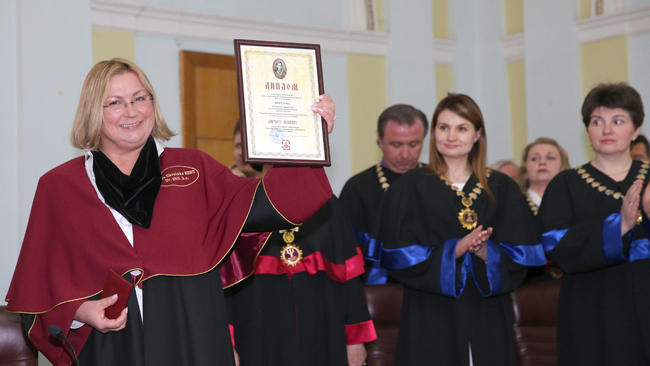
The decision on awarding the title of Honorary Professor was taken at the Academic Council of the University, in which Larysa Ivshyna has long been a member of the Supervisory Board. The list of honored professors of Lesia Ukrainka Eastern European National University includes Lina Kostenko, Yaroslav Isaievych, Dmytro Pavlychko, Ivan Drach and other renowned and respected persons; from now on, Larysa Ivshyna, who was born in Volyn, is also there.
The inauguration ceremony in the Eastern European University is held according to the traditions of worldwide classical universities. It is always a solemn and exciting event, which features inspiring people who serve as a perfect example for us all. In the hall it is proclaimed that “the Senate is open,” and the rector, Professor Ihor Kotsan initiates the ceremony of the extended Academic Council meeting. The title of Honorary Professor is the highest distinction and the highest recognition in the University. The award for Ivshyna was presented by Anna Levchuk, vice-rector for scholarly-pedagogical activities, European integration, and student affairs. “Newspaper Den helps Ukraine to make friends around the world. It is a true Ukrainian newspaper with an impeccable reputation, which influences the Ukrainians’ worldview,” said Levchuk. She expressed her gratitude to Ivshyna as the leader of newspaper that brings back our true history. “Ivshyna is a perfect example of love for one’s homeland, truth, and beauty.”
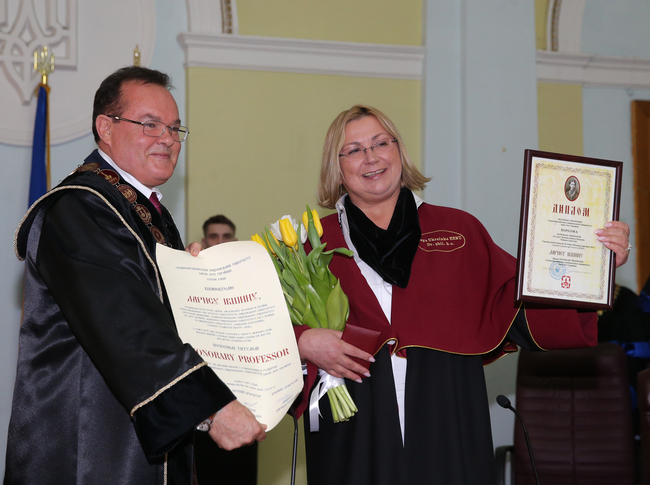
A SOLEMN MOMENT
In her inauguration speech, Ivshyna noted that the award feels special when received in her native land. “I do not feel that I’ve done everything I wanted. I am grateful for the recognition of the achievements, which are shared with me by the entire Den’s collective.”
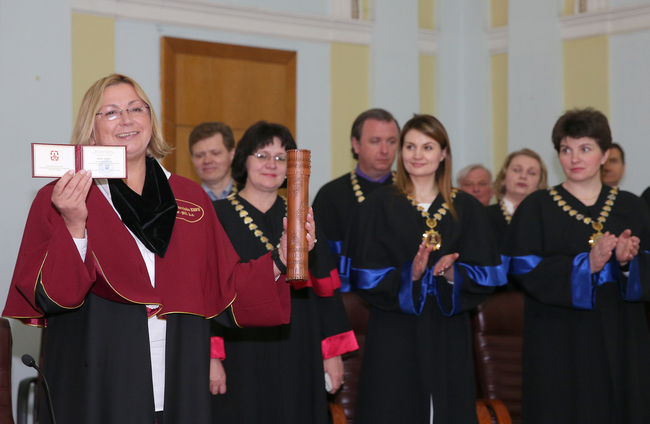
The inauguration speech became the most prominent symbolic feature of the event. The speech was entitled “Den as a story of high-quality alternative.”
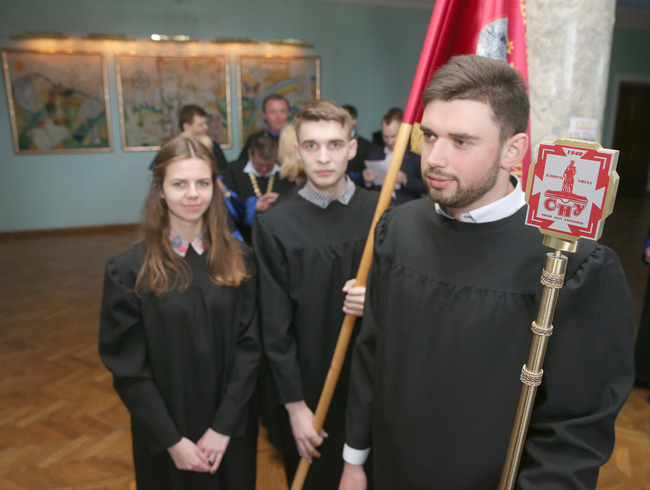
Through the history of the publication, Ivshyna demonstrated both the difficulties experienced by Ukrainian society and the ways for the society’s development. In particular, she recalled that “...in 1999, a fateful choice was made for the country. People had not noticed it for too long, but then everything became clear. And now we have to seek a way out of a much more difficult situation. Victory should be organized. The revolution can be successful if it begins in a library. When the library stage is bypassed, the problem will not be solved by sheer numbers of people. Even if the numbers prevail, it is the road to war. In our historical life, there was more than one example for that. It takes time and patience. It takes an alternative. And if there is no alternative, one should sit at home and read books. One should work on self-improvement more. And that’s what students should do the most... We can win when we can change. We will change when we examine which characteristics lead us to a defeat. And it really should be done. I know a lot of countries, including Japan (the country which I respect for it achievements), in which a social monitoring is occasionally held to find out why the national character spoils. Ukraine needs a sense of new purpose. And new purposes lie outside the frame of traditional thinking. When we talk about how we win, we must strive to a high goal. And with a high goal in mind, the entire national character modernizes. It’s not just about the EU membership. It’s about coming back to our historical matrix, which we have not mastered, and which we generously gave up for our neighbors’ use, often without a fight. As soon as we understand that the state is not currently able to take care of our level, we all need to immediately begin self-education and self-development. Because we are brave, courageous, and reasonably creative – but if the most magnificent country in central Europe is bound to this poor state, then something is wrong. Therefore we must seek for answers, we must learn to interact systematically, we must learn productive solidarity with the foci of intelligence across the country – and then, maybe, it will somehow start developing.”
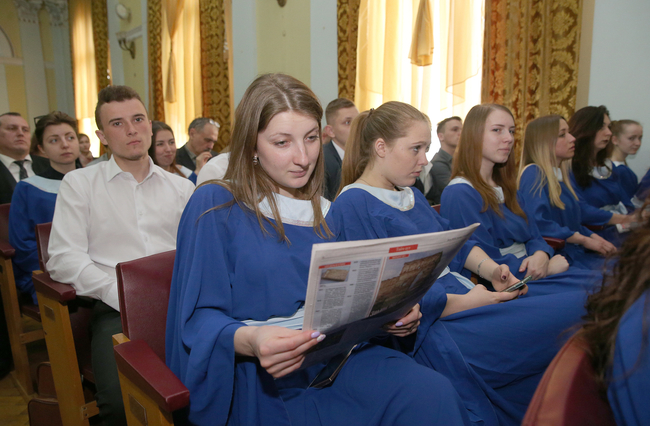
A FRESH DEN AND UNIVERSITY CHOIR GIRLS
The speech also featured an analogy: “It is very important that the Volyn University (which is now Eastern European University) was the place where Lina Kostenko delivered her landmark speech if 1991. Her report on Lesia Ukrainka, ‘the genius in terms of the restrained culture’ was not just a signal – it was a distress call. After that, all the national body’s defenses should activate. Kostenko spoke about Lesia. But not only about her: she also spoke of the conceptual notion of ‘genius and democracy.’ She predicted what would be when freedom opposes freedom, and when democracy is nothing but an imitation, an illusion which brings people down to the lowest levels of social existence... That conditions in which Kostenko finds herself now is a real test of how healthy our society is. She is a genius in terms of unrestrained anti-culture.” Twenty-five years after the memorable speech, Ivshyna’s words about Kostenko seem to have summarized a particular historical cycle; and at the same time, these words motivate us, Ukrainians, to change.
Newspaper output №:
№24, (2016)Section
Society





